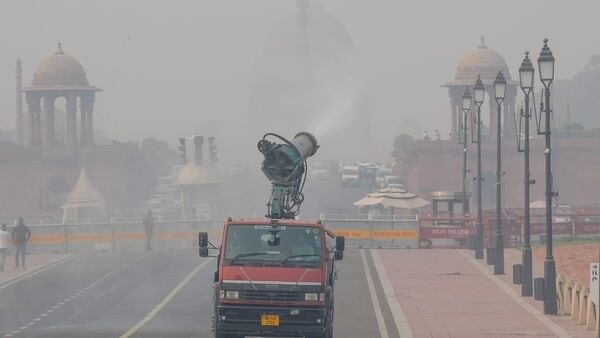On the eve of Diwali, Delhi’s air quality deteriorated sharply, with the Air Quality Index (AQI) crossing the 300 mark, placing it in the ‘very poor’ category. In response, the Commission for Air Quality Management (CAQM) implemented Stage 2 of the Graded Response Action Plan (GRAP-2). This stage imposes restrictions on the use of diesel generator (DG) sets across the National Capital Region (NCR) and prohibits the entry of interstate buses into Delhi unless they are powered by electricity, compressed natural gas (CNG), or BS-VI compliant diesel engines.

Experts anticipate that the air quality may further decline to ‘severe’ levels by Tuesday due to Diwali fireworks and unfavorable weather conditions. The toxic air is expected to persist throughout the week, with no significant improvement until at least Friday, as wind speeds remain low and pollutants linger in the atmosphere.
Authorities have urged residents to minimize outdoor activities, especially during the evening hours, and to use air purifiers indoors. Vulnerable groups, including children, the elderly, and individuals with respiratory conditions, are advised to take extra precautions. The enforcement of GRAP-2 measures underscores the urgency of addressing Delhi’s air pollution crisis during the high-risk festive period.
